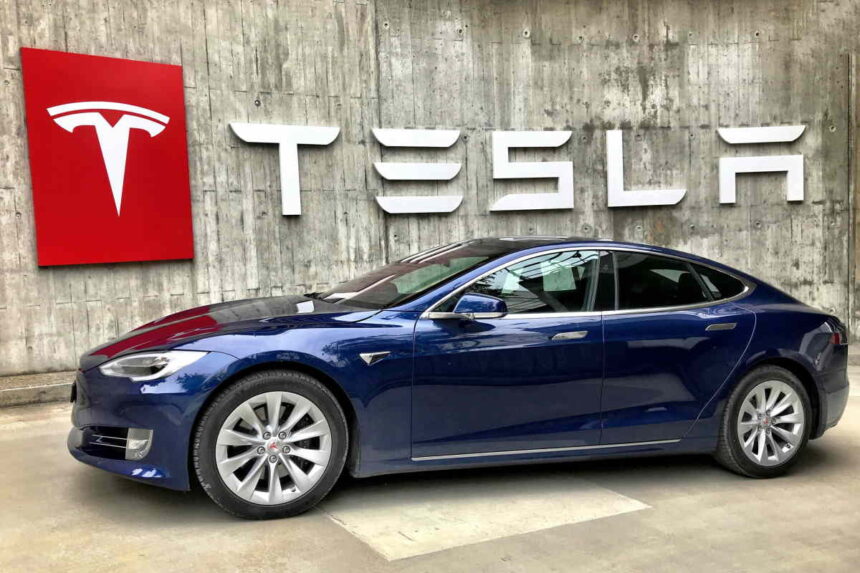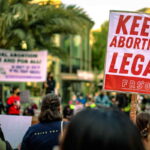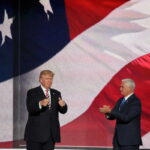Tesla, owned by Elon Musk, and the Biden administration fought against proposed limits on Chinese-made car technology in American vehicles. Proposals have certainly heightened tempers as Tesla and other car manufacturers insist the new restrictions might prove to be more of a problem than a solution.
Biden’s Bid to Limit Chinese Technology in US Automobiles
The Biden administration recently announced a plan to prohibit high-tech automotive parts manufactured by China and Russia from installation in US vehicles. But beneath it was the far more profound issue of national security, with officials concerned that permitting specific foreign-built technology into the country might jeopardize vehicle security and grant America’s adversaries access to key infrastructure.
The policy, announced by Commerce Secretary Gina Raimondo, aims to restrict foreign influence in key American automotive technologies, including vehicle communication systems enabled to interact outside the confines of the vehicle, such as autonomous driving software, Bluetooth connectivity, and other digital interfaces.
While national security is a key driver, the actual enforcement of the policy would require carmakers to document the origin of all parts used in their vehicles. In Tesla’s words, this would involve a “massive and ultimately unnecessary regulatory reporting regime” that would likely drive up operational costs for automakers. To companies like Tesla, which pride themselves on state-of-the-art technologies, the rule could imply significant production and sourcing process changes.
Tesla’s Stand Against the Ban and the Possible Consequences to the Industry
Tesla has voiced its public disapproval of parts of the Biden administration’s proposed rule, particularly on the regulatory costs it would involve. Tesla provides the view that compliance with the proposed policy will need substantial changes to be brought about in supply chain documentation, thereby making it more bureaucratic for companies that have already been facing challenges given tariffs and trade limitations.
Tesla’s pushback isn’t purely company policy; there are deeper industry implications. Other manufacturers, including Polestar, Lotus, and Ford, have weighed in with similar concerns. They say the new rules could be too limiting for brands dependent on international suppliers for their electronic components because there is a risk of narrowing down the sources of acceptable technology. Some fear this might hurt their access to essential innovation and progress coming from outside the United States and slow down their technological advancement.
Analysts also said that policies aimed at Chinese car tech may lead to retaliation from Beijing. Tesla, which sold approximately 600,000 cars in China last year, is among those that may feel repercussions should the government in China decide to put in their own set of restrictions. Adding tension makes life very unpredictable for firms operating in this market.
The Greater Geopolitical Reality and U.S.-China Relations
Biden’s proposal reflects consistent U.S. concern over the domination of China in the global automotive market, especially as EV production becomes a hot topic in international trade.
China’s automobile industry has achieved rapid growth by way of state subsidies and through an aggressive expansion drive which has enabled the Chinese car manufacturers to sell EVs at far cheaper prices than what most of their Western competitors can do. In turn, U.S. and European policymakers have revised their moves with new measures, including tariffs, to contain Chinese imports and shield their native industries.
Already, some European countries have imposed tariffs up to 35 percent on Chinese electric vehicles to deter what they believe to be subsidized, lower-cost imports. These measures aim at lowering the entry of subsidized vehicles from China, held as a threat to Europe’s own EV industry. Yet those same sentiments are informing proposed restrictions by the U.S., ones officials there see as vital to national security and economic stability.
In Tesla’s case, meanwhile, all these geopolitical movements are arriving at an inopportune moment. The company depends on sales in Chinese markets for a large chunk of its revenue, the classic definition of vulnerability to the whims of U.S.-China trade policy.
Although Tesla has consistently come out in support of free trade, on both the issues of tariffs and regulations, Musk has found himself constantly opposed to the White House. Previously, his support for open market policies conflicted with Biden’s aim to rein in China’s influence on the economy.
Musk’s Political Engagement and What It Might Portend
The context in which Musk’s comments about the probable ban were made is emblematic of Musk’s shifting political orientation. Recently, Musk has ramped up support for former President Donald Trump, reportedly donating millions to Trump’s campaign.
All of this has come at a time when Tesla faces increasing scrutiny from regulators on practices ranging from its self-driving technology to its financial disclosures. The friction between Musk and the current administration has raised speculation that his political endorsements are a backlash to any regulatory pressures.
There are even reports that Musk and Trump have discussed the possibility of Musk playing a role in a future Trump administration, perhaps in charge of a department that works on streamlining the government. Highly speculative, but such a position would put him in a position to directly impact regulations and favor looser restrictions, as he desires.
As the election heats up, the effect of Musk’s political stance could be huge. By endorsing Trump, he falls into the camp that opposes increased regulation of private companies, particularly in industries like automotive and technology, where innovation significantly outpaces the regulatory framework. Musk might have a say in the determination of trade and technology policies toward open market principles in the future if Trump is re-elected.




